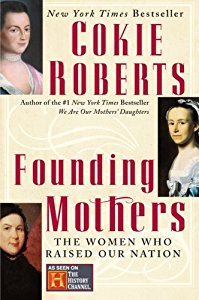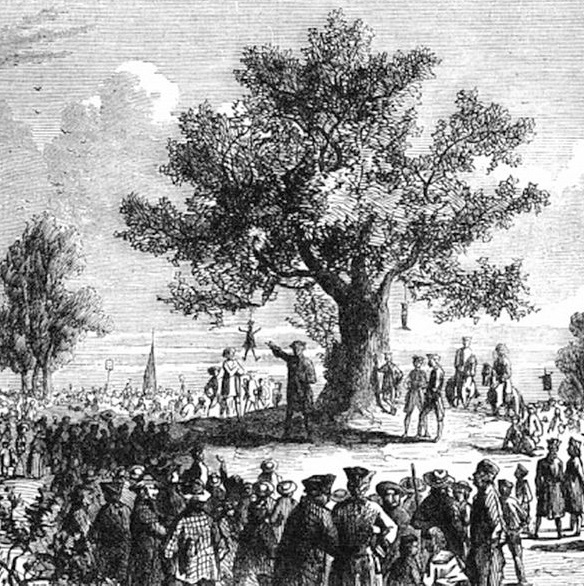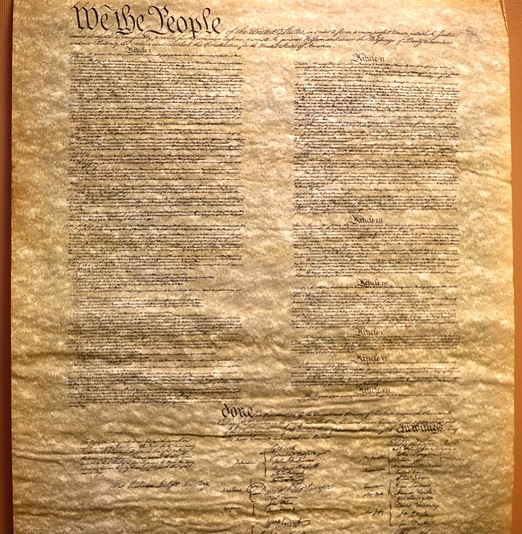
Book review: Founding Mothers by Cokie Roberts
The men only did half the work
in the Revolution…
Book review:
Founding Mothers: The Women
Who Raised Our Nation
Cokie Roberts, New York: Perennial, an imprint of HarperCollinsPublishers, 2005
You’ll learn lots by reading this book. There is a great big back story to the hagiographic literature about the so-called “Founding Fathers.”
Hint: the men didn’t do it all by themselves.
No doubt about it, the men did all the highly publicized work in the American Revolution, your Continental Congresses, your Constitution, your Boston Tea Party, your Continental Army at Trenton and Valley Forge and Yorktown, your Gen. Washington and Benedict Arnold and so on…
The ladies did equally hard work behind the scenes: maintaining the family businesses, running the farms, having kids, raising the families, whooping it up with patriotic themes and moral support for the troops, and maintaining a sometimes perilous focus on sustaining social and private life day after day during the drawn-out fighting…
Roberts takes the time to include lots of details about the lives of famous and not-so-famous women like Abigail Adams, Mercy Otis Warren, Martha Washington, Julia Rush, Sarah Pinckney, Sarah Jay, Mary Morris, and many others—of course you don’t recognize some of these names, that’s the point that Cokie Roberts is trying to make.
 As an example: Mercy Otis Warren was a phenomenon in the years preceding the Revolutionary War: as a published author, she was an influential propagandist for rebel sympathizers. Warren wrote widely read satirical plays and poems lampooning the British and loyalists, she was an ardent and well-connected letter writer, and she wrote a five-volume “republican” History of England to support the American cause. Roberts says that, in her time, she was “America’s foremost female writer.”
As an example: Mercy Otis Warren was a phenomenon in the years preceding the Revolutionary War: as a published author, she was an influential propagandist for rebel sympathizers. Warren wrote widely read satirical plays and poems lampooning the British and loyalists, she was an ardent and well-connected letter writer, and she wrote a five-volume “republican” History of England to support the American cause. Roberts says that, in her time, she was “America’s foremost female writer.”
For my taste, Founding Mothers is bountiful reading for a broadened understanding of what was going on all over the place—largely under the supervision and control of women—in the colonies, while a minority of men were scheming to have a revolution, and fighting a war that mostly involved soldiers sitting around waiting for something big to happen.
There was a whole lot of vital stuff going on, on the home front.
* * * * * *
Book review. Copyright © Richard Carl Subber 2017 All rights reserved.
A glimpse of the millennial dawn…
witness to the song of the sea…
a nature poem
“Chanson de mer”
–
In other words: Poems for your eyes and ears with 64 free verse and haiku poems,
and the rest of my poetry books are for sale on Amazon (paperback and Kindle)
and free in Kindle Unlimited, search Amazon for “Richard Carl Subber”
* * * * * *



